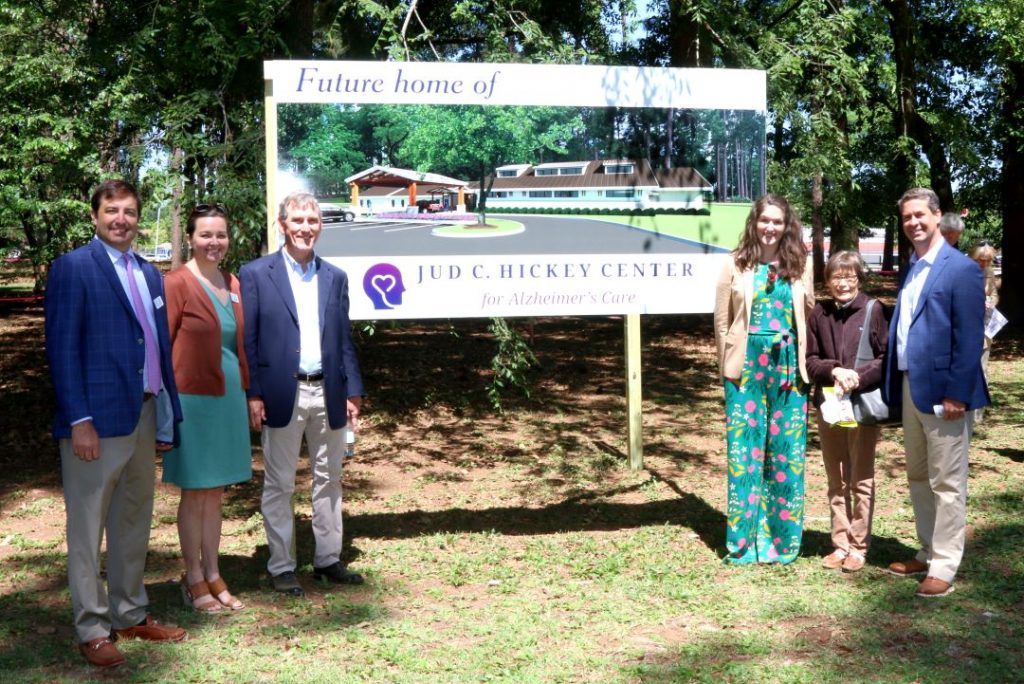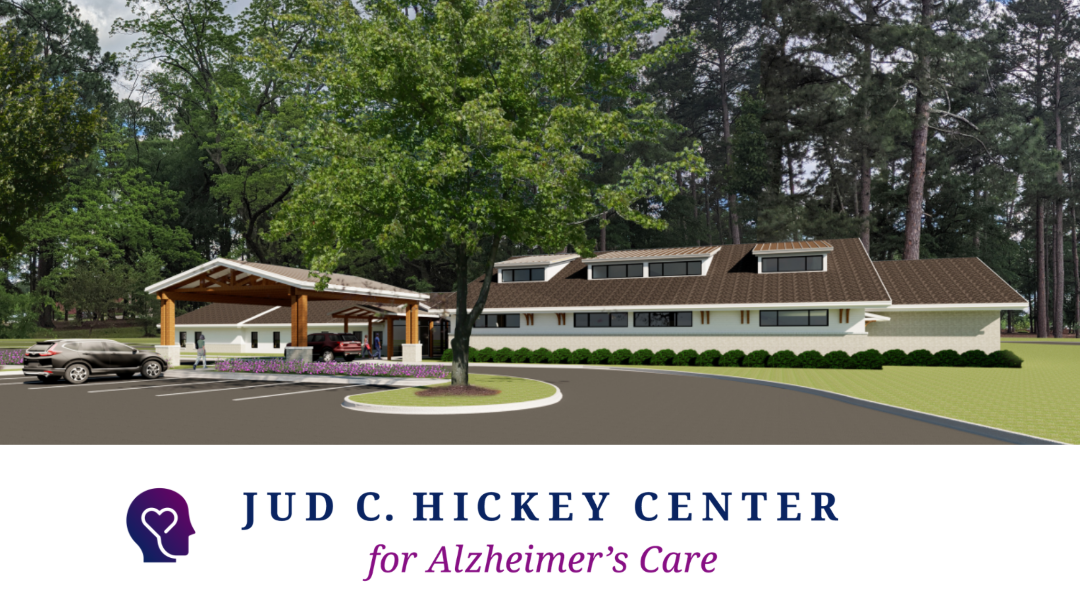A land donation through the Knox Foundation will enable the Jud C. Hickey Center for Alzheimer’s Care to expand its programs and services.
“We have a very small center. We’re able to have 30 people, and we’re bursting at the seams,” said Jennifer Pennington, the center’s executive director. On April 22, the organization had a land dedication ceremony at the new site, 3240 Washington Rd.
MORE: Fitness Center Works With People With Parkinson’s and Other Neurological Diseases
For the past several years, the Music for Memories concert has raised money to construct a building. She said the organization has raised about 70% of its goal.
Currently located in a former residence at 1901 Central Ave., the Alzheimer’s center provides social, recreational and physical programs for adults with Alzheimer’s and dementia. It also gives caretakers a respite.
[adrotate banner=”21″]
Pennington said the new center will have a residential feel to it and will include a brain health area, a physical activities space and walking track, a volunteer hub, a workshop, a home hub and a music and artistic expression studio.
Much of the wooded lot will retain its current appearance, she said. The building will be located on the side of the property closest to Advent Lutheran Church.

The Jud C. Hickey Center for Alzheimer’s Care started as a respite program in 1986 for caregivers of those with Alzheimer’s and dementia. It moved to its current space 25 years ago. It was named after Dr. Hickey who was the founding dean of the School of Dentistry at the Medical College of Georgia and was the interim president of the Medical College of Georgia from 1987-1988. He was also a client at the Alzheimer’s day center in 1996 and died from the disease in 2005, according to the center’s website.
Alzheimer’s disease has no cure, said Pennington, adding that new statistics indicate one in three senior adults are expected to develop it. Social, mental and physical activities help adults with the disease stave off its effects.
The Hickey Center had been closed because of the pandemic for more than a year but began the first phase of re-opening last week.
MORE: The RECing Crew Provides Programs for Those With Special Needs
With the new site on Washington Road, Pennington said the staff will be able to provide programs for up to 100 people. The expanded space will be needed as Georgia is expected to see 190,000 new Alzheimer’s cases diagnosed over the next five years, she said.
The center continues to raise funds for the project. For more information visit judchickeycenter.org.
Charmain Z. Brackett is the Features Editor for The Augusta Press. Reach her at charmain@theaugustapress.com.
[adrotate banner=”28″]










